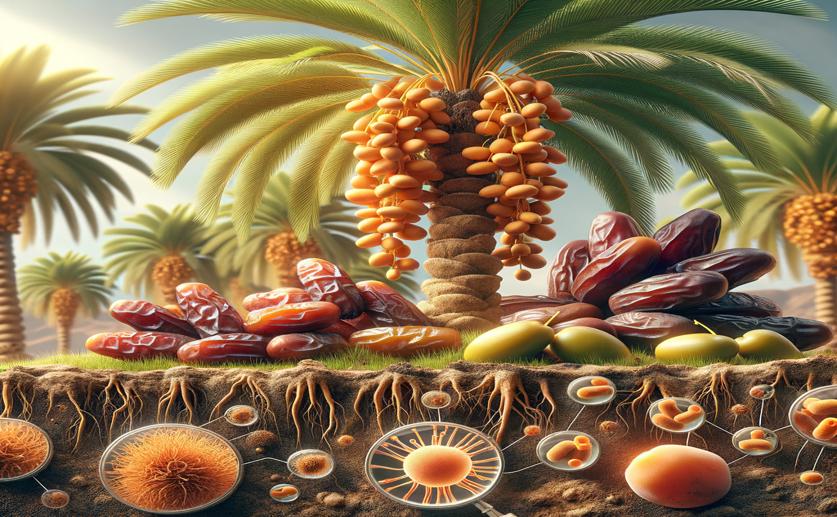
How Different Date Palm Varieties Affect Soil Microbes
Greg Howard
2nd August, 2024

Image Source: Natural Science News, 2024
Key Findings
- The study, conducted in Tunisia, found that date palm genotypes significantly influence the composition of soil microbial communities
- The commercial date palm cultivar "Deglet Nour" has a unique microbial composition, enriched with pathogenic fungi, making it more susceptible to diseases
- Traditional date palm cultivars exhibit more diverse and beneficial microbial communities compared to the commercial "Deglet Nour" cultivar
AgricultureBiochemPlant Science
References
Main Study
1) Exploring the Influence of Date Palm Cultivars on Soil Microbiota
Published 1st August, 2024
https://doi.org/10.1007/s00248-024-02415-x
Related Studies
2) Back to our roots: exploring the role of root morphology as a mediator of beneficial plant-microbe interactions.
3) Legacy of land use history determines reprogramming of plant physiology by soil microbiome.
4) The Diversity of Archaea and Bacteria in Association with the Roots of Zea mays L.
Journal: Microbial ecology, Issue: Vol 41, Issue 3, Apr 2001



 28th July, 2024 | Jim Crocker
28th July, 2024 | Jim Crocker